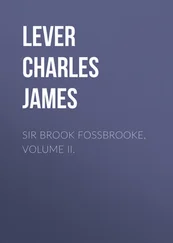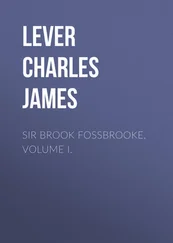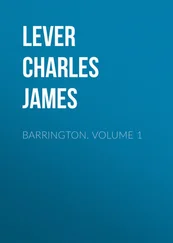Charles Lever - Tom Burke Of Ours, Volume II
Здесь есть возможность читать онлайн «Charles Lever - Tom Burke Of Ours, Volume II» — ознакомительный отрывок электронной книги совершенно бесплатно, а после прочтения отрывка купить полную версию. В некоторых случаях можно слушать аудио, скачать через торрент в формате fb2 и присутствует краткое содержание. Жанр: literature_19, foreign_antique, foreign_prose, на английском языке. Описание произведения, (предисловие) а так же отзывы посетителей доступны на портале библиотеки ЛибКат.
- Название:Tom Burke Of Ours, Volume II
- Автор:
- Жанр:
- Год:неизвестен
- ISBN:нет данных
- Рейтинг книги:3 / 5. Голосов: 1
-
Избранное:Добавить в избранное
- Отзывы:
-
Ваша оценка:
- 60
- 1
- 2
- 3
- 4
- 5
Tom Burke Of Ours, Volume II: краткое содержание, описание и аннотация
Предлагаем к чтению аннотацию, описание, краткое содержание или предисловие (зависит от того, что написал сам автор книги «Tom Burke Of Ours, Volume II»). Если вы не нашли необходимую информацию о книге — напишите в комментариях, мы постараемся отыскать её.
Tom Burke Of Ours, Volume II — читать онлайн ознакомительный отрывок
Ниже представлен текст книги, разбитый по страницам. Система сохранения места последней прочитанной страницы, позволяет с удобством читать онлайн бесплатно книгу «Tom Burke Of Ours, Volume II», без необходимости каждый раз заново искать на чём Вы остановились. Поставьте закладку, и сможете в любой момент перейти на страницу, на которой закончили чтение.
Интервал:
Закладка:
The attempt to outflank us on the right we had perfectly retorted on the left; where Lannes’s division, overlapping the line, pressed them on two sides, and drove them back, still fighting, into the plain, which, with a lake, separated the allied armies from the village of Austerlitz. And here took place the most dreadful occurrence of the day.
The two roads which led through the lake were soon so encumbered and blocked up by ammunition wagons and carts that they became impassable; and as the masses of the fugitives thickened, they spread over the lake, which happened to be frozen. It was at this time that the Emperor came up, and seeing the cavalry halted, and no longer in pursuit of the flying columns, ordered up twelve pieces of the artillery of the Imperial Guard, which, from the crest of the hill, opened a murderous fire on them. The slaughter was fearful as the discharges of grape and round shot cut channels through the jammed-up mass, and tore the dense columns, as it were, into fragments.
Dreadful as the scene was, what followed far exceeded it in horror; for soon the shells began to explode beneath the ice, which now, with a succession of reports louder than thunder, gave way. In an instant whole regiments were ingulfed, and amid the wildest cries of despair, thousands sank never to appear again, while the deafening artillery mercilessly played upon them, till over that broad surface no living thing was seen to move, while beneath was the sepulchre of five thousand men. About seven thousand reached Austerlitz by another road to the northward; but even these had not escaped, save for a mistake of Bernadotte, who most unaccountably, as it was said, halted his division on the heights. Had it not been for this, not a soldier of the Russian right wing had been saved.
The reserve cavalry and the dragoons of the Guard were now called up from the pursuit, and I saw my own regiment pass close by me, as I stood amid the staff round Murat. The men were fresh and eager for the fray; yet how many fell in that pursuit, even after the victory! The Russian batteries continued their fire to the last. The cannoneers were cut down beside their guns, and the cavalry made repeated charges on our advancing squadrons; nor was it till late in the day they fell back, leaving two thirds of their force dead or wounded on the field of battle.
On every side now were to be seen the flying columns of the allies, hotly followed by the victorious French. The guns still thundered at intervals; but the loud roar of battle was subdued to the crashing din of charging squadrons, and the distant cries of the vanquishers and the vanquished. Around and about lay the wounded in all the fearful attitudes of suffering; and as we were fully a league in advance of our original position, no succor had yet arrived for the poor fellows whose courage had carried them into the very squares of the enemy.
Most of the staff – myself among the number – were despatched to the rear for assistance. I remember, as I rode along at my fastest speed, between the columns of infantry and the fragments of artillery which covered the grounds, that a peloton of dragoons came thundering past, while a voice shouted out “Place! place!” Supposing it was the Emperor himself, I drew up to one side, and uncovering my head, sat in patience till he had passed, when, with the speed of four horses urged to their utmost, a calèche flew by, two men dressed like couriers seated on the box. They made for the highroad towards Vienna, and soon disappeared in the distance.
“What can it mean?” said I, to an officer beside me; “not his Majesty, surely?”
“No, no,” replied he, smiling: “it is General Lebrun on his way to Paris with the news of the victory. The Emperor is down at Reygern yonder, where he has just written the bulletin. I warrant you he follows that calèche with his eye; he’d rather see a battery of guns carried off by the enemy than an axle break there this moment.”
Thus closed the great day of Austerlitz – a hundred cannons, forty-three thousand prisoners, and thirty-two colors being the spoils of this the greatest of even Napoleon’s victories.
CHAPTER IV. THE FIELD AT MIDNIGHT
We passed the night on the field of battle, – a night dark and starless. The heavens were, indeed, clothed with black, and a heavy atmosphere, lowering and gloomy, spread like a pall over the dead and the dying. Not a breath of air moved; and the groans of the wounded sighed through the stillness with a melancholy cadence no words can convey. Far away in the distance the moving lights marked where fatigue parties went in search of their comrades. The Emperor himself did not leave the saddle till nigh morning; he went, followed by an ambulance, hither and thither over the plain, recalling the names of the several regiments, enumerating their deeds of prowess, and even asking for many of the soldiers by name. He ordered large fires to be lighted throughout the field, and where medical assistance could not be procured, the officers of the staff might be seen covering the wounded with greatcoats and cloaks, and rendering them such aid as lay in their power.
Dreadful as the picture was, – fearful reverse to the gorgeous splendor of the vast army the morning sun had shone upon, and in the pride of strength and spirit, – yet even here was there much to make one feel that war is not bereft of its humanizing influences. How many a soldier did I see that night, blackened with powder, his clothes torn and ragged with shot, sitting beside a wounded comrade – now wetting his lips with a cool draught, now cheering his heart with words of comfort! Many, though wounded, were tending others less able to assist themselves. Acts of kindness and self-devotion – not less in number than those of heroism and courage – were met with at every step; while among the sufferers there lived a spirit of enthusiasm that seemed to lighten the worst pang of their agony. Many would cry out, as I passed, to know the fate of the day, and what became of this regiment or of that battalion. Others could but articulate a faint “Vive l’Empereur!” which in the intervals of pain they kept repeating, as though it were a charm against suffering; while one question met me every instant, – “What says the Petit Caporal? Is he content with us?” None were insensible to the glorious issue of that day; nor amid all the agony of death, dealt out in every shape of horror and misery, did I hear one word of anger or rebuke to him for whose ambition they had shed their heart’s blood.
Having secured a fresh horse, I rode forward in the direction of Austerlitz, where our cavalry, met by the chevaliers of the Russian Imperial Guard, sustained the greatest check and the most considerable loss of the day. The old dragoon who accompanied me warned me I should find few, if any, of our comrades living there.
“ Ventrebleu! lieutenant, you can’t expect it. The first four squadrons went down like one man; for when our fellows fell wounded from their horses, they always sabred or shot them as they lay.”
I found this information but too correct. Lines of dead men lay beside their horses, ranged as they stood in battle, while before them lay the bodies of the Russian Guard, their gorgeous uniform all slashed with gold, marking them out amid the dull russet costumes of their comrades. In many places were they intermingled, and showed where a hand-to-hand combat had been fought; and I saw two clasped rigidly in each other’s grasp, who had evidently been shot by others while struggling for the mastery.
“I told you, mon lieutenant, it was useless to come here; this was à la mort while it lasted; and if it had continued much longer in the same fashion, it’s hard to say which of us had been going over the field now with lanterns.”
Читать дальшеИнтервал:
Закладка:
Похожие книги на «Tom Burke Of Ours, Volume II»
Представляем Вашему вниманию похожие книги на «Tom Burke Of Ours, Volume II» списком для выбора. Мы отобрали схожую по названию и смыслу литературу в надежде предоставить читателям больше вариантов отыскать новые, интересные, ещё непрочитанные произведения.
Обсуждение, отзывы о книге «Tom Burke Of Ours, Volume II» и просто собственные мнения читателей. Оставьте ваши комментарии, напишите, что Вы думаете о произведении, его смысле или главных героях. Укажите что конкретно понравилось, а что нет, и почему Вы так считаете.












